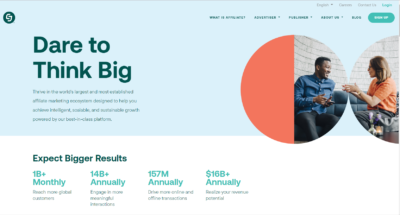In the digital landscape of the 21st century, having a website is no longer a luxury, but a necessity. Whether you’re a small business owner looking to expand your customer base, a blogger wanting to share your thoughts with the world, or a professional showcasing your portfolio, a website serves as your online identity. But how does one go about creating a website? This is where website builders come into play.
Website builders have democratized web development, making it accessible to everyone, regardless of their technical expertise. They provide the tools and platforms for anyone to create a professional-looking website without needing to understand coding or web design. But with so many website builders available in the market, each offering its unique set of features and tools, how do you choose the right one?
This article aims to guide you through the process of selecting the best website builder for your needs. We will delve into the world of website builders, exploring their importance, key features to consider, and how they impact factors like Search Engine Optimization (SEO) and user experience. We will also compare some of the top website builders in the market and discuss future trends in website building.
So whether you’re a novice stepping into the world of web development or an experienced developer looking for insights on the latest trends in website builders, this article has something for everyone. Read on to embark on this journey of discovery and make an informed decision about which website builder is right for you.
Understanding Website Builders
Website builders have indeed revolutionized the way we create and manage websites. They have made it possible for anyone, regardless of their technical expertise, to create a professional-looking website. Let’s delve deeper into understanding website builders.
Website builders are tools that allow the construction of websites without the need for manual code editing. They have democratized web development, making it accessible to everyone. Whether you’re a small business owner looking to establish an online presence, a blogger wanting to share your thoughts with the world, or a professional showcasing your portfolio, website builders provide the platform for you to create your unique online identity.
Types of Website Builders
There are two main types of website builders: online proprietary tools provided by web hosting companies, and software which runs on a computer, creating pages offline which can then be published on any host.
Online Website Builders
Online proprietary tools are typically subscription-based services offered by web hosting companies. These tools are designed to be user-friendly, often featuring drag-and-drop interfaces that make creating a website as easy as dragging and dropping elements onto a page. Examples of online proprietary website builders include Wix, Weebly, and Squarespace.
Offline Website Builders
On the other hand, offline website builder software allows you to design your website offline on your computer, and then publish it on any web host. This type of website builder requires a bit more technical know-how as you’ll need to deal with setting up the website and uploading it to a web host. Examples of offline website builder software include Adobe Dreamweaver and Microsoft Expression Web.
Pros and Cons of Online and Offline Website Builders
Both types of website builders have their pros and cons. Online proprietary tools are generally easier for beginners to use, but they may lack the flexibility and power of offline software. Offline software, while more complex, offers greater flexibility and control over your site.
Incorporating SEO strategies into your website is crucial for increasing your site’s visibility on search engines. Most website builders offer SEO tools that can help optimize your site for search engines. These tools can guide you in incorporating primary and secondary keywords into your site’s content, improving your site’s chances of ranking higher in search engine results.
In this regard, it’s clearly evident that website builders have made it possible for anyone to create a professional-looking website without needing to learn how to code. Whether you choose an online proprietary tool or offline software will depend on your specific needs and level of technical expertise.
The Importance of Choosing the Right Website Builder
Choosing the right website builder is indeed a crucial decision, akin to choosing the foundation for your house. Just as the foundation determines the strength and stability of your house, the website builder sets the stage for your website’s performance, functionality, and growth potential.
A website builder is more than just a tool for creating a website. It’s a comprehensive platform that provides you with the resources and support you need to build, maintain, and grow your online presence. The right website builder will offer a robust set of features, an intuitive interface, and flexible customization options to cater to your specific needs.
Website Builders’ Ease of Use
When choosing a website builder, it’s important to consider its ease of use, especially if you’re a beginner with no coding skills. A good website builder will have an intuitive interface and user-friendly design tools that make it easy for you to create a professional-looking website.
Features Offered in Website Builders
Another key factor to consider is the range of features offered by the website builder. These can include SEO tools, e-commerce capabilities, blogging platforms, and social media integration. The more features a website builder offers, the more flexibility you have in creating a website that meets your specific needs.
Website Builders’ Support
Support is another crucial aspect to consider when choosing a website builder. The right website builder will provide comprehensive support to help you navigate any challenges you may encounter during the website building process. This can include tutorials, FAQs, live chat support, and community forums.
Scalability Prospects of Website Builders
In addition to these factors, it’s also important to consider the scalability of the website builder. As your business or blog grows, your website needs will likely change and evolve. The right website builder will be able to accommodate this growth and provide you with the tools and resources you need to expand your website.
Therefore, choosing the right website builder is a crucial decision that can significantly impact the success of your online presence. By considering factors such as ease of use, feature set, support, and scalability, you can choose a website builder that not only meets your current needs but also supports your future growth.
Key Features to Consider When Selecting Website Builders
When selecting a website builder, there are several key features to consider. These features can significantly impact the functionality and usability of your website, as well as the experience of your site visitors. Let’s delve deeper into these features:
Website Builders’ Ease of Use
The website builder should have an intuitive interface that’s easy to navigate, even for beginners. It should offer drag-and-drop functionality, allowing you to easily add and arrange elements on your web pages.
Customization Options in Website Builders
The website builder should offer a wide range of customization options to help you create a unique and engaging website. This can include different design templates, color schemes, font options, and the ability to add custom CSS or HTML code.
E-commerce Features of Website Builders
If you’re planning to sell products or services on your website, you’ll need a website builder with robust e-commerce features. This can include shopping cart functionality, payment gateway integration, inventory management, and shipping options.
Website Builders Blogging Functionality
If you’re planning to run a blog on your website, look for a website builder that offers blogging functionality. This can include features like post scheduling, social sharing options, and the ability to add a comments section.
Cost of Website Builders
Website builders can range in price from free to several hundred dollars per year. Consider your budget and the features you need when choosing a website builder.
Website Builders Domain Registration and Hosting Services
Some website builders include domain registration and hosting services in their packages. This can be a convenient option if you prefer to have all your website services in one place.
Remember, the best website builder for you will depend on your specific needs and goals. Take the time to research different options and consider which features are most important for your website before making a decision.
Comparing Top Website Builders
In the vast sea of website builders available today, four platforms stand out due to their unique features and benefits: Wix, Weebly, Squarespace, and WordPress. Let’s delve deeper into what each of these top website builders has to offer.
Wix Website Builders
Known for its intuitive drag-and-drop interface, Wix makes it easy for beginners to create a professional-looking website. It offers a wide range of templates and customization options, allowing you to create a unique website that reflects your brand or personality. Wix also includes SEO tools to help your website rank higher in search engine results.
Weebly Website Builders
Weebly is another user-friendly website builder with a drag-and-drop interface. It offers a variety of design templates, and its built-in SEO tools make it easy to optimize your website for search engines. Weebly also offers e-commerce features, making it a good choice for online stores.
Squarespace Website Builders
Known for its sleek, professional design templates, Squarespace is a great choice for creatives and businesses looking for a visually stunning website. While it may have a steeper learning curve compared to Wix and Weebly, Squarespace offers robust features and high-quality designs.
WordPress Website Builders
WordPress is one of the most popular website builders on the market. It offers the most flexibility and customization options, making it a great choice for more advanced users. With thousands of themes and plugins available, you can create virtually any type of website with WordPress.
When choosing a website builder, it’s important to consider your specific needs and skill level. Each of these website builders offers a range of features designed to help you create a professional-looking website with ease. However, they each have their strengths and may be better suited for different types of websites.
Importance of SEO in Website Building
Search Engine Optimization, or SEO, is a fundamental aspect of building a website. It’s the process of enhancing your website so it can be easily discovered by search engines like Google. But why does SEO matter in website building? Let’s delve deeper into this topic.
When you optimize your website for search engines, you’re essentially making it easier for these search engines to understand what your website is about. This is done through various techniques such as using relevant keywords in your content, optimizing meta tags, using alt tags for images, and ensuring your website has a responsive design.
Keywords Services in Website Builders
The use of relevant keywords is particularly important in SEO. When you use keywords that are relevant to your content and that your target audience is likely to use when searching for information, you increase the chances of your website appearing in search engine results. This can lead to increased visibility and more traffic to your site.
But SEO isn’t just about using the right keywords. It’s also about providing valuable content that answers the questions your target audience is asking. Search engines like Google prioritize websites that provide valuable, high-quality content. By consistently providing such content, you can improve your website’s SEO ranking over time.
Mobile Responsiveness/Optimization in Website Builders
Another crucial aspect of SEO is mobile optimization. With more and more people using their mobile devices to access the internet, it’s important to ensure that your website is mobile-friendly. A mobile-friendly website not only provides a better user experience but it’s also favored by search engines.
It can therefore be concluded that SEO is indeed a crucial aspect of building a website. It involves various techniques aimed at making your website more discoverable by search engines, which can lead to increased visibility and traffic. Whether you’re building a personal blog or a business website, incorporating SEO strategies into your website building process can help you reach a wider audience.
User Experience: A Crucial Factor to Look For in Website Builders
User experience, often abbreviated as UX, plays a pivotal role in website building. It’s the overall experience a user has while interacting with a website, and it can significantly impact the success of the site. A good user experience can lead to increased engagement, higher conversion rates, and improved customer loyalty. Let’s delve deeper into why user experience is so crucial in website building and how to create a site that offers an excellent user experience.
Navigation Convenience of Website Builders
Firstly, a good user experience starts with easy navigation. When visitors come to your site, they should be able to find the information they’re looking for without any hassle. This involves having a clear, intuitive navigation menu, using breadcrumbs, and including a search function. The easier it is for users to navigate your site, the more likely they are to stay, explore, and convert into customers.
Visual Appeal of the Website Builders
Secondly, the visual appeal of your site also contributes to the user experience. A visually appealing site can attract and retain visitors. This involves choosing the right color scheme that aligns with your brand, using high-quality images and videos, and ensuring that your text is easy to read. Remember, your website is often the first impression potential customers have of your business, so it’s important to make it count.
Applying Creativity in Website Builders to Create Interesting Content
Thirdly, providing valuable content is another key aspect of user experience. Your content should be engaging, informative, and relevant to your audience. It should answer their questions, solve their problems, or provide them with the information they’re looking for. High-quality content can position you as an authority in your field and keep visitors coming back for more.
Mobile User Friendliness of Website Builders
Lastly, your website should be optimized for mobile devices. With more people using their smartphones to browse the web, having a mobile-friendly site is no longer optional. A mobile-optimized site not only provides a better user experience but it’s also favored by search engines.
Note that user experience is a crucial factor in website building. By focusing on easy navigation, visual appeal, valuable content, and mobile optimization, you can create a website that offers an excellent user experience and drives business success.
Cost-Benefit Analysis of Popular Website Builders
When choosing a website builder, conducting a cost-benefit analysis is an essential step. This involves comparing the cost of the builder with the features and benefits it provides. Let’s delve deeper into this process.
Firstly, it’s important to understand that the cost of website builders can vary greatly. Some website builders may be free or offer free versions, while others may require a monthly or annual subscription. The cost can also vary depending on the plan you choose, with higher-tier plans offering more advanced features.
When conducting a cost-benefit analysis, you should consider not only the cost of the website builder but also the value it provides. This includes considering the features offered by the builder, such as design templates, customization options, SEO tools, e-commerce capabilities, and customer support.
For example, a more expensive website builder may offer more advanced features such as a larger selection of design templates, more robust e-commerce capabilities, and superior customer support. These features can provide significant value, especially if you’re running a business and rely on your website for sales and customer engagement.
On the other hand, a cheaper website builder may offer fewer features but could be a good option if you’re just starting out or if you’re running a personal blog or small business website with minimal requirements.
Remember that, when choosing a website builder, it’s important to conduct a cost-benefit analysis to ensure you’re getting the best value for your money. Consider not only the cost of the builder but also the value it provides in terms of features and benefits. Remember that the best website builder for you will depend on your specific needs and budget.
The Role of Customer Support in Website Builders
Customer support plays a pivotal role in the overall experience with any website builder. It’s the backbone that can make your website building journey smooth and efficient. Let’s delve deeper into the importance of customer support in website builders.
Good customer support is more than just having someone to answer your queries. It’s about providing timely, efficient, and effective solutions to problems that you may encounter while using the website builder. Whether it’s a technical glitch, a billing issue, or a question about a particular feature, good customer support can help you resolve these issues quickly and efficiently.
Most top-rated website builders offer multiple channels of customer support, including live chat, email support, phone support, and extensive knowledge bases. Live chat and phone support provide immediate assistance, while email support, though slightly slower, allows for detailed problem-solving. Knowledge bases, on the other hand, are self-help resources where you can find answers to common questions and learn at your own pace.
Good customer support can also contribute to the learning curve associated with using a new tool. Especially if you’re new to website building, having access to responsive and helpful customer support can make the process less daunting and more enjoyable.
Moreover, the quality of customer support reflects the company’s commitment to its users. Companies that invest in providing excellent customer support are likely to be customer-centric and dedicated to offering a high-quality product.
Website Builders: A Look at Mobile Responsiveness
In today’s digital age, more and more people are using mobile devices to browse the web. In fact, mobile internet usage has surpassed desktop usage in recent years. This shift in browsing habits has made mobile responsiveness a crucial feature in website builders.
Mobile responsiveness refers to a website’s ability to adapt to different screen sizes and orientations. A mobile-responsive site will automatically adjust its layout, images, and functionalities to fit the screen size of the device it’s being viewed on. This ensures that users have a seamless and optimal viewing experience, regardless of whether they’re accessing your site from a desktop computer, a laptop, a tablet, or a smartphone.
Website builders have recognized the importance of mobile responsiveness and have incorporated this feature into their platforms. They offer design templates that are already optimized for mobile viewing. Some even offer the ability to edit the mobile version of your site separately to ensure it looks and functions exactly how you want it to.
Having a mobile-responsive site not only provides a better user experience but also has SEO benefits. Search engines like Google prioritize mobile-friendly websites in their search results. This is because they want to ensure that their users have the best experience possible, regardless of the device they’re using.
Future Trends associated to Website Builders
As we look towards the future, it’s clear that technology will continue to evolve and shape the landscape of website building. Here are some trends that we may see in the coming years:
Increased Website Builders Application of AI and Machine Learning
Artificial Intelligence (AI) and machine learning are already making waves in various industries, and website building is no exception. We can expect to see an increased use of these technologies in website design, making the process even more automated and efficient. For instance, AI could be used to automatically generate website layouts based on user preferences, while machine learning could help personalize the user experience based on their behavior.
More Advanced SEO Tools Offered by a Website Builders
Search Engine Optimization (SEO) is crucial for increasing a website’s visibility on search engines. As SEO algorithms become more complex, we can expect website builders to offer more advanced SEO tools. These tools will likely go beyond keyword optimization and delve into more complex aspects of SEO, such as semantic search and voice search optimization.
Increased Focus on Website Builders Mobile Responsiveness
With the increasing prevalence of mobile internet usage, having a mobile-responsive website is no longer just an option—it’s a necessity. Future website builders will likely place an even greater emphasis on mobile responsiveness, ensuring that websites look and function well on a variety of devices.
Greater Emphasis on a Website Builders Level of User Experience
User experience is already a crucial factor in website building, but its importance will only grow in the future. Website builders will likely offer more tools and features aimed at improving user experience, such as improved navigation features, faster load times, and more personalization options.
The future of website building looks bright, with many exciting advancements on the horizon. By staying informed about these trends, you can ensure that your website remains competitive in the ever-evolving digital landscape. Always be on the lookout for our series of informative blogs about up-to-date developments in the technological space, as a way of ensuring that you’re well informed about developments that could help make your personal and professional life easier.
Conclusion
In conclusion, choosing the right website builder is crucial for creating a successful website. By considering factors such as SEO rankings, user experience, cost-benefit analysis, customer support, mobile responsiveness, and future trends in website building, you can make an informed decision about which builder is right for you.
By
George Brian
Editor- Web Tech Experts








